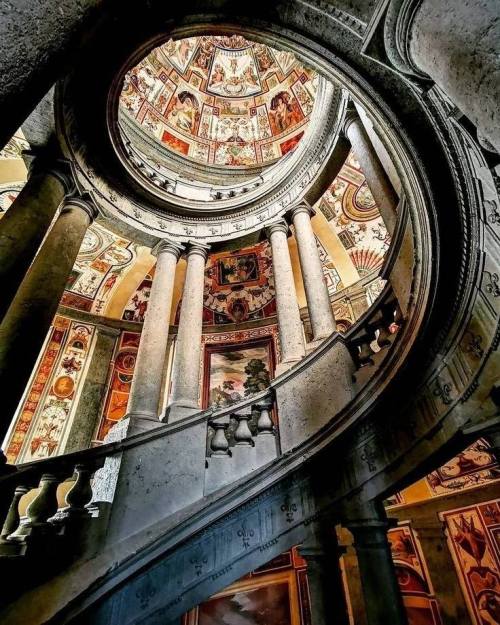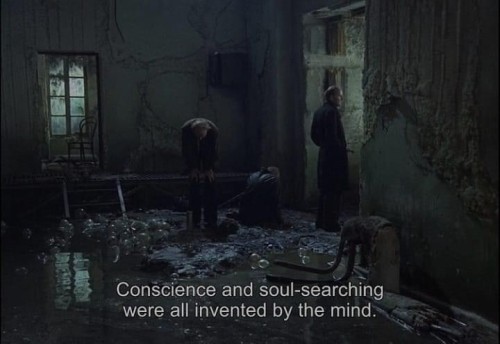Theinfinityarchivist - The ♾️ Archivist


More Posts from Theinfinityarchivist and Others
a few more great films that are free on the internet archive
in decent quality too!
first list, second list
aggregate letterboxd list, archive list of all the films
perfect blue (1997) dir. satoshi kon
carol (2015) dir. todd haynes
the elephant man (1980) dir. david lynch
a girl walks home alone at night (2014) dir. ana lily amirpour
d.e.b.s. (2004) dir. angela robinson
nausicaa of the valley of the wind (1984) dir. hayao miyazaki
killer klowns from outer space (1988) dir. stephen chiodo
mommy (2014) dir. xavier dolan
jennifer's body (2009) dir. karyn kusama
suspiria (1977) dir. dario argento
battleship potemkin (1925) dir. sergei eisenstein
his girl friday (1940) dir. howard hawks
cube (1997) dir. vincenzo natali
nightcrawler (2014) dir. dan gilroy
black orpheus (1959) dir. marcel camus
chunking express (1994) dir. wong kar wai
meeting people is easy: a film about radiohead (2001) dir. grant gee
the grapes of wrath (1940) dir. john ford
the black cat (1941) dir. albert s rogell
the tin star (1957) dir. anthony mann

Sestroretsk, Leningrad oblast (1972)




Please stop discrediting your ancestors' ability to tell stories by trying to find material/physical origins to their stories. Krampus isn't a cryptid, dragon stories weren't inspired by dinosaur fossils, every region has its own mythology and fae are only a thing in Celtic, English, and English-colonized regions, your ancestors were perfectly capable of doing things without help from aliens, and our world is weird enough that tales of mysterious strangers, mass disappearances, memories not lining up, and so on, are better explained as a product of OUR world than hypothetical other worlds/timelines. A lot of weird tales were spun by storytellers. Give some respect to their hard work.

Villa Farnese, Caparola, Province of Viterbo, Italy

found this on pinterest, thought of tumblr
part two of 'bonsai's stolen memes'





Learned a bit about lead-cooled fission reactors the other day. Apparently you can like. Brick a lead-cooled nuclear reactor. If your core cools down or you spring a leak to air, the lead can solidify and Sorry but your reactor is now a solid brick. Of lead. Lol

This poem by the Persian Sufi Poet Abū Saʿīd Abū'l-Khayr or Abusa'id Abolkhayr
(Persian: ابوسعید ابوالخیر) (December 7, 967 - January 12, 1049)
is inscribed on the tomb of Jalāl al-Dīn Muḥammad Rūmī
and is often incorrectly attributed to him.
باز آ باز آ، هر آن چه هستی باز آ
گر کافر و گبر و بتپرستی باز آ
این درگهِ ما، درگهِ نومیدی نیست
صد بار اگر توبه شکستی باز آ
___________
Transliteration:
bāz ā bāz ā, har ān keh hastee bāz ā
gar kāfer o gabr o bot parastee bāz ā
een dargeh-ye mā, dargeh-ye nomeedee neest
sad bār agar tobeh shekastee bāz-ā
___________
I provide three translations. The first, by Barks, is the most famous rendering into English. Barks captures the simplicity of the sentiment. Gamart more accurately translates the verse. My own version is meant to be literal, rather than poetic. None of the English translations capture the repugnance that the words infidel, heretic, pagan, unbeliever or idolater carry in the original. Please read the note for further insight into this poem.
___________
Translation by Coleman Barks:
Come, come, whoever you are.
Wanderer, worshiper, lover of leaving. It doesn't matter.
Ours is not a caravan of despair.
Come, even if you have broken your vows a thousand times. Come, yet again, come, come.
___________
Translation by Sidi Ibrahim Gamart:
Come again, please, come again, Whoever you are. Religious, infidel, heretic or pagan. Even if you promised a hundred times And a hundred times you broke your promise, This door is not the door Of hopelessness and frustration. This door is open for everybody. Come, come as you are.
___________
My own more literal translation:
Come, come, whoever you are, come again
Be you faithless, unbeliever or idolater, come again
This doorway of ours, it is not the entry to despair
If you’ve broken your repentance a hundred times, come again.
___________
Notes:
bāz ā = come again; welcome (bāz means both “again” and “open”; both meanings are relevant here)
kāfer = usually translated as infidel, the basic meaning of the word in Arabic (kufr) is someone who is ungrateful [for God’s blessings], or who has no faith; by extension, someone who does not believe in the tenants of Islam, who is a pagan, non-believer, or member of a non-Muslim religion. It is commonly used as a pejorative term.
gebr or gabr = the word originally referred to someone who was a Zoroastrian but came to have a pejorative meaning referring to any non-Muslim, or sometimes to any unbeliever The word continues to be used as a slur against Christians in some former areas of the Ottoman Empire.
Bot parasti = idol worshiper (again, a pejorative term)
All three of the phrases used have the sting of extremely insulting, pejorative terms. All three place the person being referred to as the most outcast or outside categories in Islamic society. To say they are welcome is to go against all expectations.
* Note that the word Dargah has many meanings, several of which are indicated directly in this line: portal, door, threshold, the site of the saint’s tomb. The royal court (dargah) was also where the king dispensed legal rulings and justice, which also plays into the poem: no matter how many transgressions you have made, this is not the place for having no hope. Baz A, means, come, come again, welcome.
* درگاه (درگهِ) dargāh (dar=door; gāh or gah=place): Portal, door; location of the door [into a house or building]; threshold; a royal court, a palace; a mosque; shrine or tomb (of some reputed saint}; place of pilgrimage.
** nomidi: no hope (na=no; omid=hope)
tobeh (Arabic “tawbeh”) = repentance. In Islam repentance is an individual matter between an individual and the Divine. By using this word the poet transfers the point of view from society’s vantage point (someone who is outside the fold of society), to the personal (what is my relationship to the Divine).
Persian (Farsi) Calligraphy by S J Thomas www.palmstone.com
-
 ch3rryp1nk reblogged this · 3 weeks ago
ch3rryp1nk reblogged this · 3 weeks ago -
 0th3rw0rldl1n3ss reblogged this · 3 weeks ago
0th3rw0rldl1n3ss reblogged this · 3 weeks ago -
 low-po1y-princess liked this · 4 weeks ago
low-po1y-princess liked this · 4 weeks ago -
 edensyndrome reblogged this · 4 weeks ago
edensyndrome reblogged this · 4 weeks ago -
 vitasunday liked this · 1 month ago
vitasunday liked this · 1 month ago -
 milfstranding reblogged this · 1 month ago
milfstranding reblogged this · 1 month ago -
 realsuperhero3 liked this · 1 month ago
realsuperhero3 liked this · 1 month ago -
 0x1-mp3 liked this · 1 month ago
0x1-mp3 liked this · 1 month ago -
 sunfish3131 liked this · 1 month ago
sunfish3131 liked this · 1 month ago -
 eyepeepers liked this · 1 month ago
eyepeepers liked this · 1 month ago -
 hes-a-rat-in-a-hat reblogged this · 1 month ago
hes-a-rat-in-a-hat reblogged this · 1 month ago -
 pocket-sized-gentleman liked this · 1 month ago
pocket-sized-gentleman liked this · 1 month ago -
 theinfinityarchivist reblogged this · 1 month ago
theinfinityarchivist reblogged this · 1 month ago -
 theinfinityarchivist liked this · 1 month ago
theinfinityarchivist liked this · 1 month ago -
 ghost-does-whatever reblogged this · 1 month ago
ghost-does-whatever reblogged this · 1 month ago -
 ghost-does-whatever liked this · 1 month ago
ghost-does-whatever liked this · 1 month ago -
 feminerds liked this · 1 month ago
feminerds liked this · 1 month ago -
 s0la-nine liked this · 2 months ago
s0la-nine liked this · 2 months ago -
 b26cobaltblue liked this · 2 months ago
b26cobaltblue liked this · 2 months ago -
 kazhetsya-vy1 liked this · 2 months ago
kazhetsya-vy1 liked this · 2 months ago -
 p3rfect-g4mer-g33k liked this · 2 months ago
p3rfect-g4mer-g33k liked this · 2 months ago -
 disqualifiedhuman liked this · 2 months ago
disqualifiedhuman liked this · 2 months ago -
 coco-meloon liked this · 2 months ago
coco-meloon liked this · 2 months ago -
 ciyl liked this · 2 months ago
ciyl liked this · 2 months ago -
 fletchtheartist liked this · 2 months ago
fletchtheartist liked this · 2 months ago -
 wassailingreader liked this · 2 months ago
wassailingreader liked this · 2 months ago -
 commie-sama reblogged this · 2 months ago
commie-sama reblogged this · 2 months ago -
 idk-kun liked this · 2 months ago
idk-kun liked this · 2 months ago -
 asthecrowrambles liked this · 3 months ago
asthecrowrambles liked this · 3 months ago -
 rathianruby liked this · 3 months ago
rathianruby liked this · 3 months ago -
 justilin liked this · 3 months ago
justilin liked this · 3 months ago -
 ali3npuppyy liked this · 3 months ago
ali3npuppyy liked this · 3 months ago -
 abel-gayble reblogged this · 3 months ago
abel-gayble reblogged this · 3 months ago -
 otonashikyouko reblogged this · 3 months ago
otonashikyouko reblogged this · 3 months ago -
 starryrika liked this · 3 months ago
starryrika liked this · 3 months ago -
 rentaniisan liked this · 3 months ago
rentaniisan liked this · 3 months ago -
 jointedoll reblogged this · 3 months ago
jointedoll reblogged this · 3 months ago -
 miyuyyr liked this · 3 months ago
miyuyyr liked this · 3 months ago -
 souisde4d reblogged this · 3 months ago
souisde4d reblogged this · 3 months ago -
 souisde4d liked this · 3 months ago
souisde4d liked this · 3 months ago -
 genderwip reblogged this · 3 months ago
genderwip reblogged this · 3 months ago -
 genderwip liked this · 3 months ago
genderwip liked this · 3 months ago -
 rip-gloss liked this · 3 months ago
rip-gloss liked this · 3 months ago -
 darling-valentine reblogged this · 3 months ago
darling-valentine reblogged this · 3 months ago -
 darling-valentine liked this · 3 months ago
darling-valentine liked this · 3 months ago -
 ny8m1x reblogged this · 3 months ago
ny8m1x reblogged this · 3 months ago -
 slimsurvivalmax reblogged this · 3 months ago
slimsurvivalmax reblogged this · 3 months ago -
 vitalq liked this · 3 months ago
vitalq liked this · 3 months ago
